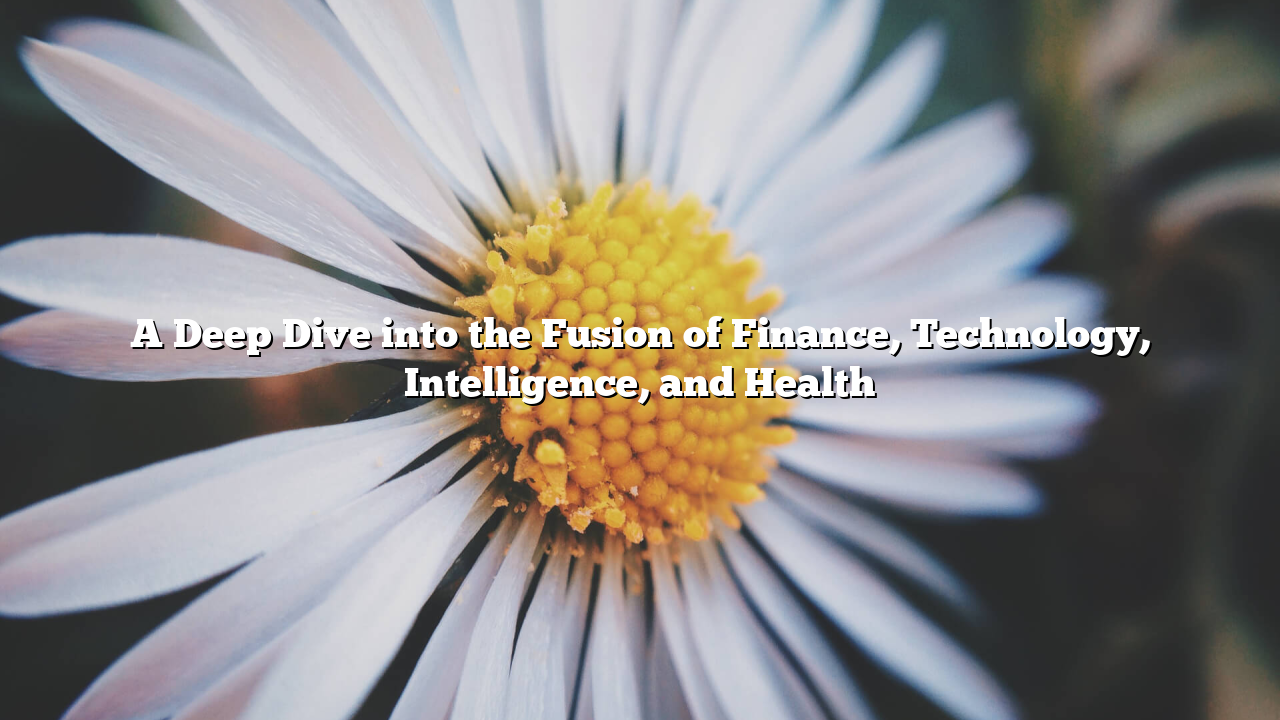With innovation at an all-time high, the convergence of financial systems, technology, AI, and healthcare is transforming how we work. These fields, once seen as separate, are now intertwined, creating new dimensions for individuals, businesses, and governments alike.
How Finance is Adapting to Technology
The financial industry has undergone a significant transformation due to breakthroughs in technology. Traditional banking systems are now being disrupted by fintech startups.
Mobile payment systems like Google Pay are becoming mainstream payment options, reducing the need for physical currency. Additionally, the rise of decentralized currencies such as Solana has opened new avenues for investment and trade.
Badak55 -based contracts, powered by blockchain, are changing the way we handle transactions. These contracts execute automatically once conditions are met, minimizing the need for intermediaries.
Technology’s Role in Finance and Health
Modern tech is not only innovating the financial landscape but also enhancing the healthcare sector. Through wearable devices like fitness bands, individuals can now track their heart rate in real time.
Online medical consultations has become widely accepted, especially after the COVID-19 pandemic. Patients can access healthcare professionals without having to visit hospitals physically, thus saving time and reducing exposure.
On the financial side, technology has also enabled automated decision-making. AI-powered investment platforms offer customized investment strategies based on individual risk profiles.
Smarter Solutions for a Smarter World
Machine Learning (ML) is at the core of this digital shift. In finance, AI is used to predict market trends with incredible accuracy.
For instance, credit scoring models that once relied on limited historical data now use AI to assess a person’s spending habits using real-time data sources. This ensures more inclusive lending practices.
In healthcare, AI is fueling medical diagnostics. Tools like IBM Watson can process vast amounts of medical data to predict diseases faster than any human doctor.
The Quantified Self Movement
Information is the new oil in today’s world. Through digital records, individuals can track their health metrics to prevent diseases rather than treat them.
Apps like MyFitnessPal encourage healthier living through diet tracking. These technologies also integrate with insurance companies to offer discounts for healthier lifestyles, linking financial benefits directly to well-being.
Electronic Health Records (EHR) ensure seamless communication between doctors, specialists, and patients. This not only improves the accuracy of diagnosis but also reduces the chances of medical errors.
Challenges and Ethical Concerns
Despite the benefits, the fusion of these fields also brings concerns. Privacy issues are becoming more common as financial and medical information is stored online.
Algorithmic discrimination in both financial lending and healthcare recommendations can lead to unintended consequences. It’s crucial that AI models are trained on inclusive datasets.
Furthermore, the digital divide means that not everyone can benefit from these advancements. Policies must ensure that older adults are not left behind.
The Road Ahead
Looking to the future, the fusion of finance, technology, intelligence, and health will continue to accelerate. Quantum computing may enable new forms of personalized medicine.
Governments and corporations will need to collaborate on frameworks to ensure ethical use of these technologies. Education and digital literacy will also play a key role in helping the population adapt to these changes.
Ultimately, the blend of finance, tech, AI, and health is not just a trend—it’s the foundation of our future. Those who understand and embrace this evolution will be better prepared for the landscape ahead.
